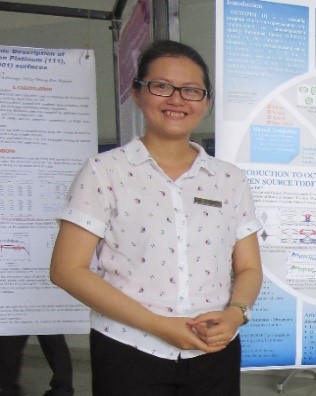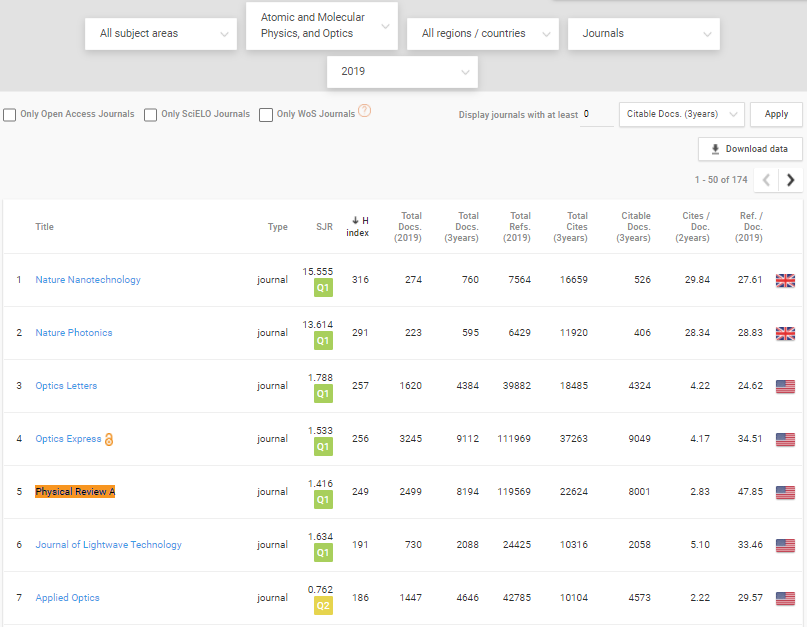Female scientist of Ton Duc Thang University has been awarded the Young Researchers Prize of the Vietnam Theoretical Physics Society
The Young Researchers Award is the annual award of the Vietnamese Theoretical Physics Society (VTPS) given to young researchers with outstanding research achievements in the field of theoretical physics and the other relevant fields.
The 2020 Young Researcher Award was awarded at the 45th Vietnam Conference on Theoretical Physics held by the Institute of Physics of the Vietnam Academy of Science and Technology in coordination with VTPS from 12th to 14th of October, 2020 in Vinh Phuc province. This year, Dr. Le Thi Cam Tu, full-time researcher of the Advanced Institute of Materials Science - Ton Duc Thang University (TDTU), was honored to receive this award.

Dr. Le Thi Cam Tu, Full-time researcher of the Advanced Institute of Materials Science, TDTU
Dr. Le Thi Cam Tu has been working at TDTU since October 2018 and successfully defended her Ph.D. thesis in Physics in 2019 at the Vietnam National University Ho Chi Minh City - University of Science. So far, Dr. Le Thi Cam Tu is the author of 8 works in ISI journal, including 2 works in Physical Review A, the leading journal on atomic, molecular, and optical physics of the American Physical Society.
Physical Review A (ISSN: 2469-9926, American Physical Society Publisher) belongs to the ISI journal with an IF (Impact Factor) in 2019 of 2,777 according to Journal Citation Reports (Clarivate, USA), and the H-index number of 249 according to Scimago (SJR, Spain), with the narrow specialization in Atomic and Molecular Physics, and Optics.

Physical Review A rating screenshot
The Young Researcher Awards were awarded to the two works of Dr. Le Thi Cam Tu in 2020 VTPS as follows:
- The first work is “The Effect of the dynamic core-electron polarization of CO molecules on high-order harmonic generation”.
- The second work is “Influence of dynamic core-electron polarization on the structural minimum in high-order harmonics of CO2 molecules”
These two works are a long and elaborate process of research because the articles published in the Physical Review A Journal have to meet the high requirement on novelty and pioneering in the field of science.
Summary of two works
The first work investigates the effect of the dynamic core-electron polarization (DCEP) method on CO molecules in creating high-order harmonic generation (HHG) by solving the time-dependent Schrödinger equation (TDSE). Along with the DCEP method, the change in ionization rate also has a strong correlation with the intensity of HHG. To demonstrate the origin of this method more clearly, the work also mentions that DCEP can generate the effective electrical potential corresponding to the change in ionization rate. In addition, the DCEP method can also be applied to more conveniently process and calculate HHG for many other research objects.
The second work: The DCEP method is considered an important method in the ionization of polar molecules such as CO. This method affects the strength of the harmonic waves through ionization at a particular time rather than the entire interaction interval. This article indicates that DCEP can affect the high-order harmonic generation (HHG). Therefore, the DCEP method can sharpen the HHG wave spectrum during wave interference. To clarify this problem, the article mentions the TDSE for the laser field of the CO2 molecule in a single electron frame.
With the above achievements, Dr. Le Thi Cam Tu was invited by the Organizing Committee to present a report with the title: "The Effect of dynamic core-electron polarization on harmonic process of linear molecules". This is a successful year in scientific research for TDTU. The University is honored to have 3 out of 9 invited papers at the Conference.
References:
Cam-Tu Le; Effect of the dynamic core-electron polarization of CO molecules on high-order harmonic generation; Physical Review A, Volume 97, Issue 4.
Cam-Tu Le; Influence of dynamic core-electron polarization on the structural minimum in high-order harmonics of CO2 molecules; Physical Review A, Volume 100, Issue 5.








